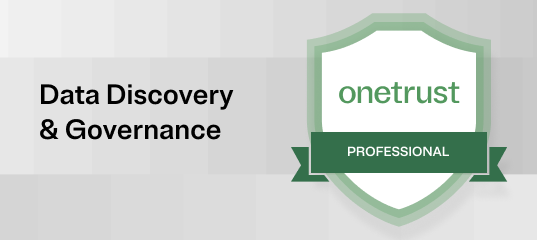COP27, the global conference of parties to the UN Framework Convention on Climate Change (UNFCCC), concluded its activities on November 20th, two days beyond the scheduled conference end. While there were some history-making agreements, they were ultimately overshadowed by a perception of stagnation when it came to taking a stand for climate action. Much like COP26, the parties reasserted the need to meet 1.5C target under the Paris Agreement but failed to make firm commitments on how to get there. In particular, the hotly debated issue of phasing out fossil fuel generated power and its related subsidies did not make it into the final draft text of COP27 overarching decisions. One bright spot was climate finance which played a significant role in the COP 2022 conference. Wealthy nations reaffirmed their financial support for a just and sustainable transition away from carbon and compensating poor countries for mounting damages from climate change.
Download the free Guide to setting corporate climate goals to find out how to set credible climate goals and disclose your progress accurately and transparently.
3 key takeaways from COP27
1. Phasing out/down fossil fuels fell flat
Lack of commitment around the complete phase-out fossil fuels to facilitate progress toward the Paris Climate Agreement goals was a lowlight of the conference. Despite support from at least 80 countries to include a stronger commitment for “phasing down” (not “phasing out”) all fossil fuels, it did not happen. Language to this effect was walked back to reflect a repeat of last year’s commitments at COP26. The final text includes no reference to “phasing out” or “phasing down” fossil fuels and instead urges countries to accelerate “efforts towards the phasedown of unabated coal power and phase-out of inefficient fossil fuel subsidies.” Unsurprisingly opposition to the stronger language came from oil and gas producing nations, including those in the middle east where COP27 was held, and other larger emitters. These major producers and emitters blocked proposals to limit fossil fuel use and touted carbon capture as a viable mitigation strategy in lieu of transition. Critics assert that the technology won’t scale fast enough to mitigate carbon emissions in time.
2. Wealthy nations pledge support to vulnerable nations, again
One highlight of the conference was an agreement by the parties to provide “loss and damage” financial support for developing and vulnerable countries most impacted by climate disasters. This includes many small island nations who are already dealing with the brunt of extreme weather events and rise in sea-levels. Wealthy countries, who have been the heaviest carbon emitters since the industrial revolution, committed to provide funding to these affected countries. Though agreement on this did not come easy, ultimately negotiators agreed on a loss and damage facility to provide financial support to these vulnerable countries.
It remains unclear, however, how, and when the fund will be implemented. Executive Director of Power Shift Africa, Mohamed Adow, remarked, “What we have is an empty bucket. Now we need to fill it so that support can flow to the most impacted people who are suffering right now at the hands of the climate crisis.” It’s also not the first time a pledge like this was made. In 2009 at COP15 in Copenhagen, wealthy nations committed to provide $100 billion annually to developing countries to help them adapt to climate change. While some funding was, in fact, provided, critics note that it has fallen short of the pledge every year since COP15. It’s also far below the UN’s estimate of $1.6 trillion-$3.8 trillion that will be required annually to avoid warming beyond 1.5C. By contrast, approximately $5.9 trillion was spent on subsidizing the fossil fuel industry in 2020 alone, according to the International Monetary Fund (IMF).
3. Independent actions are a bright spot
As the largest climate event globally, the annual COP summits provide an ideal platform for announcements by independent actors and alliances. In several cases, major players highlighted strong climate action. For example:
- The US announced several key initiatives including strengthened policies and investment for reducing methane emissions and accelerating clean energy, increased support for vulnerable nations, new requirements for climate disclosure by federal suppliers, and more. It also launched the Net-Zero Government Initiative which requires member countries to achieve net-zero emissions from national government operations by no later than 2050. So far, 18 countries have joined the US in the new initiative.
- 50 more countries joined the Global Methane Pledge, launched by the US and Europe at COP26, bringing the total number of participants to 150. Countries that join agree to take voluntary action to contribute to a global methane emissions reduction of at least 30% from 2020 levels by 2030. Participants also agree to move toward best practice inventory methodologies for national greenhouse gas (GHG) inventory reporting.
- The UK tripled funding to support climate adaptation from £500 million ($614 million) in 2019 to £1.5 billion ($1.84 billion) in 2025. It also committed £90 million ($110 million) for rainforest conservation in the Congo Basin and £65.5 million ($80 million) to accelerate the development of clean energy in developing nations. The UK also announced a proposed new rule that would require companies to disclose their net zero transition plans.
Finally, although not technically announced at COP27, the Corporate Sustainability Reporting Directive (CSRD) was adopted by the European Parliament and Council on November 11 and approved on November 28. It aims to make large businesses more publicly accountable for their societal and environmental impacts through more robust reporting requirements.
Additional positive developments
Despite contentious negotiations that extended the conference by a few days and a general sentiment of disappointment, the parties did agree to some other positive developments. These include:
- Strengthening of early warning and weather forecasting capabilities for developing and vulnerable countries,
- Accelerating the transition to renewable energy technologies (requiring $4 trillion annually in investment through 2030, to achieve net-zero by 2050),
- Welcoming the recommendations on standards for Net-Zero pledges, from the High-Level Expert Group on the Net Zero Emissions Commitments on Non-state Entities,
- Emphasizing the importance of ensuring a just and inclusive transition, especially with respect to developing countries,
- Improving access to financing or other financial instruments through Multilateral Development Banks (MDBs) and International Financial Institutions (IFIs) such as the World Bank.
What does this mean for your business?
In short, it’s unlikely that COP27 decisions will directly impact businesses in the short term. However, it is a bellwether for the direction that climate action is headed and the issues that are growing in importance for stakeholders. Certainly, some of the regulatory announcements that happened before and around COP27 confirm this. Businesses have an opportunity to stay ahead of these shifts by aligning their practices with the relevant broader ambitions of the conference. Specifically, these include transitioning to renewable energy, expediting decarbonization to achieve net zero emissions, and disclosing climate-related pledges and progress openly and transparently.
The prioritization of climate-informed finance and investment provides another opportunity (and potential risk) for businesses. Companies that align with growing expectations around climate risk and implement transition plans quickly will gain faster access to capital. However, those that remain resistant to the transition will risk losing access to capital, investors, customers and potentially their license to operate. Many of the regulatory developments are also focused on facilitating access to credible, investor-grade information that financial institutions need to efficiently allocate capital through this transition. These include a growing list of rules and legislation around climate risk and disclosures, such as those under the European Green Deal, UK Climate Act, and the US Securities and Exchange Commission.
How can OneTrust help?
At OneTrust we believe that what’s good for the planet is good for business, and we unlock every company’s potential to thrive by doing good. Our Trust Intelligence Platform connects data, teams, and processes – so you can collaborate seamlessly and put trust at the center of your operations. The OneTrust ESG & Sustainability Cloud provides the following capabilities, empowering our customers to manage their ESG programs:
- Accurate and science-based carbon accounting,
- Management of ESG objectives, targets, and risks,
- Credible reporting and disclosure aligned with widely used voluntary and regulatory frameworks, and
- Assessment and mitigation of supplier and partner risks.
The outcomes of COP27 have reinforced the growing demand for true and accurate reporting on climate risks for investors and financial institutions, among a broader group of stakeholders. Through the OneTrust ESG cloud, you can accurately collect, action, and credibly disclose climate risks and impacts. This helps drive efficiency in your program and, most importantly, build trust with your customers, partners, and other key stakeholders.
To learn how to set climate goals for your business and create a credible climate action story, download the free Guide to setting corporate climate goals.
You may also be interested in downloading the eBook “ESG management essentials” to learn how to keep your organization ahead of the curve on emerging regulations.


























